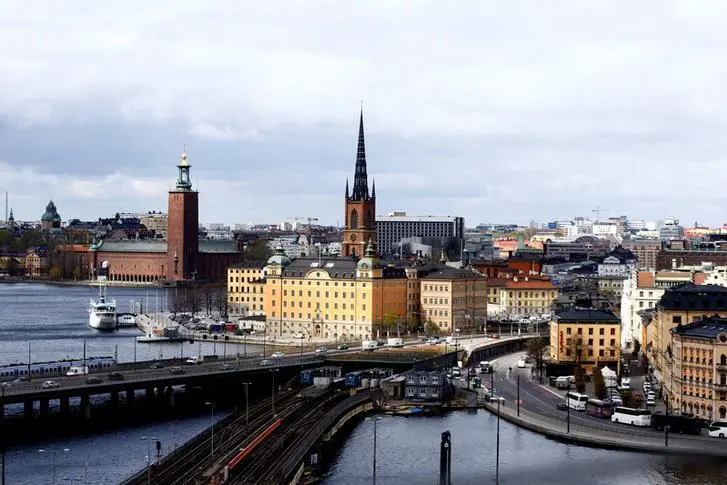PHOTO
Sweden's gross domestic product (GDP) was unchanged in July against the previous month, a preliminary, seasonally-adjusted estimate by the Statistics Office showed on Wednesday, amid fresh predictions of recession next year.
Sweden's economy exited the pandemic in robust shape, but the war in Ukraine and the inflation surge it has drawn with it is now starting to weigh on growth even if activity was 1.6% higher on a calendar-adjusted basis compared to a year ago.
In a fresh forecast on Wednesday, banking group Nordea said it expected GDP in Sweden, which holds general elections on Sunday, to shrink 0.5% in 2023 after growth of 3.0% this year, with the balance of risk on the downside.
Headline inflation will hit 10%, Nordea said, and the Riksbank will hike its policy rate more aggressively than currently forecast, with a peak of 2.50%.
"We think the Riksbank will hike by 75 basis points in September, 75 basis points in November and 25 basis points in February next year," Nordea economist Torbjorn Isaksson said.
The benchmark rate is currently at 0.75% and the Riksbank forecasts a peak at around 2%.
Higher rates will have a knock-on effect on house prices which several banks predict will fall by around 15% from a peak in the spring of this year.
"There are tough times ahead for households," Isaksson said.
The soaring inflation, above all for energy, has joined crime at the heart of Sweden's election campaign where the Social Democrat-led government and its allies are running neck-and-neck with the right-wing opposition.
Separate data on Wednesday showed household consumption fell 1.5% in July versus the previous month. Private production was robust, boosted by industries, but the construction sector slowed sharply.
(Reporting by Simon Johnson, editing by Anna Ringstrom and Niklas Pollard)





















